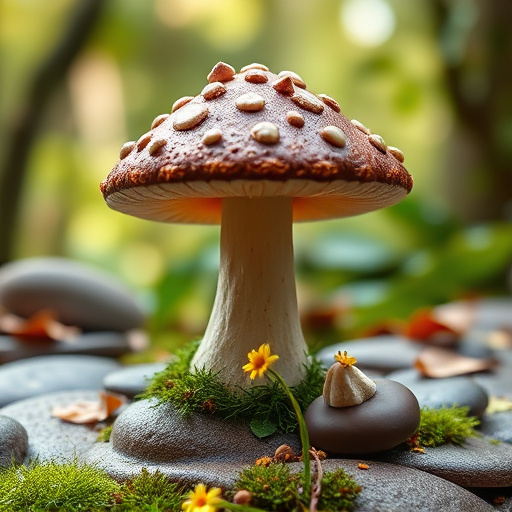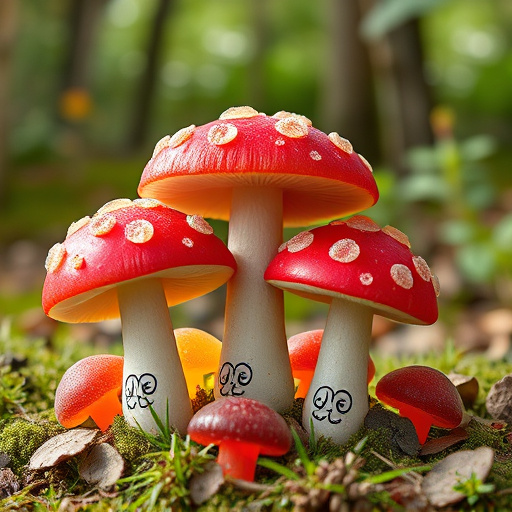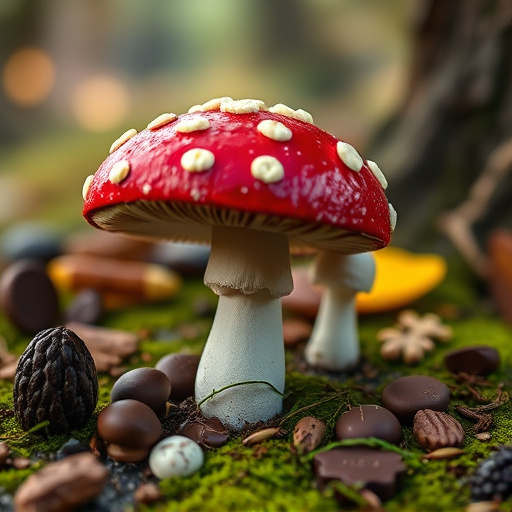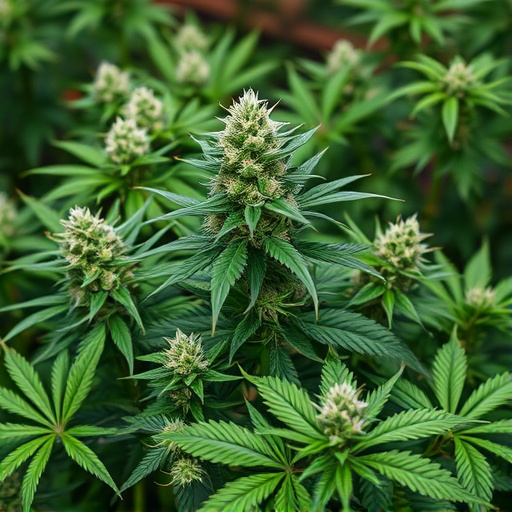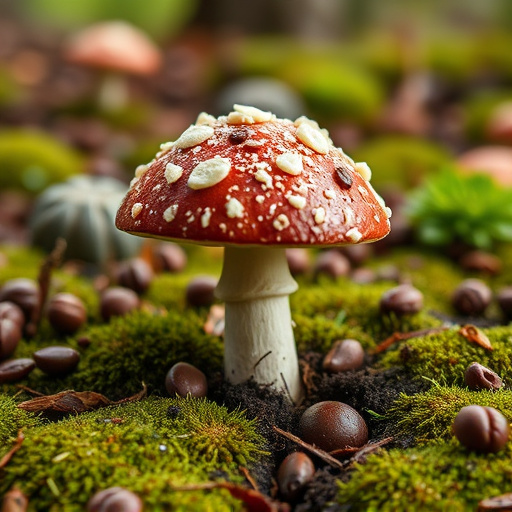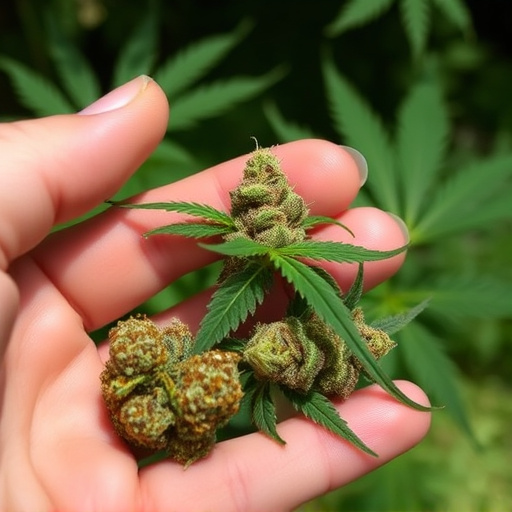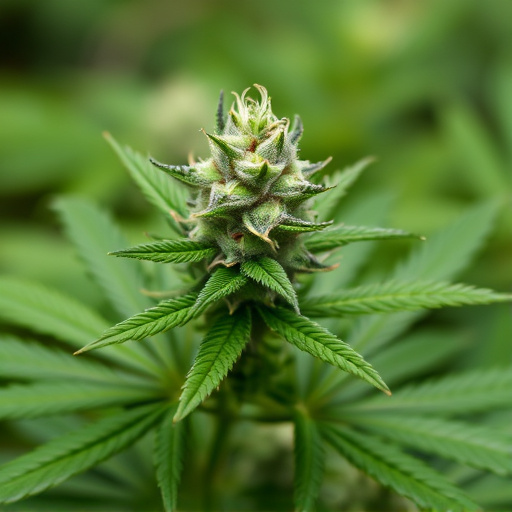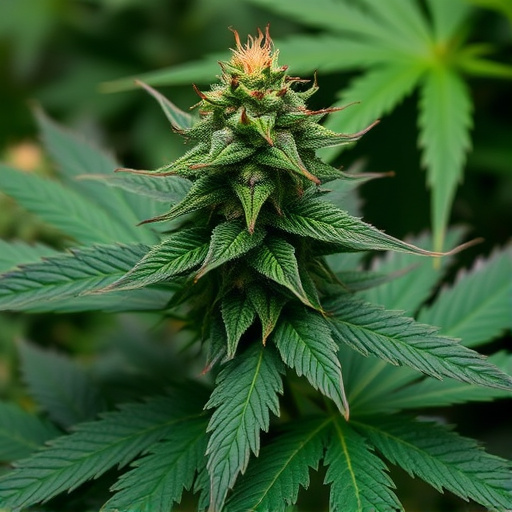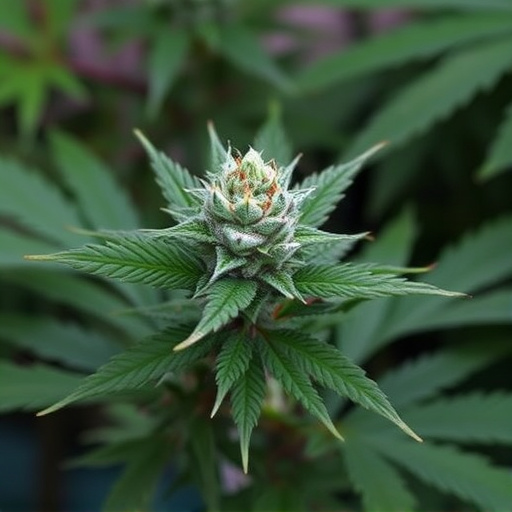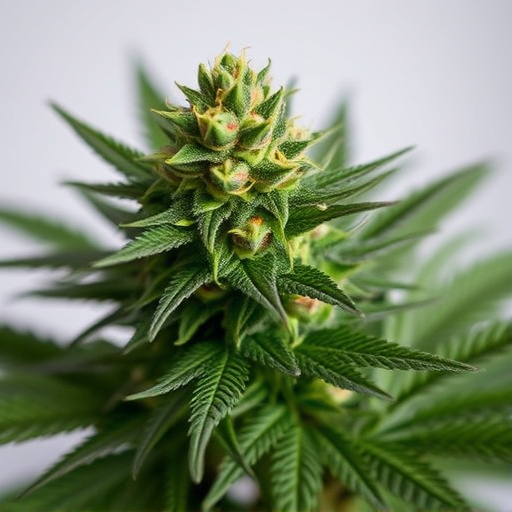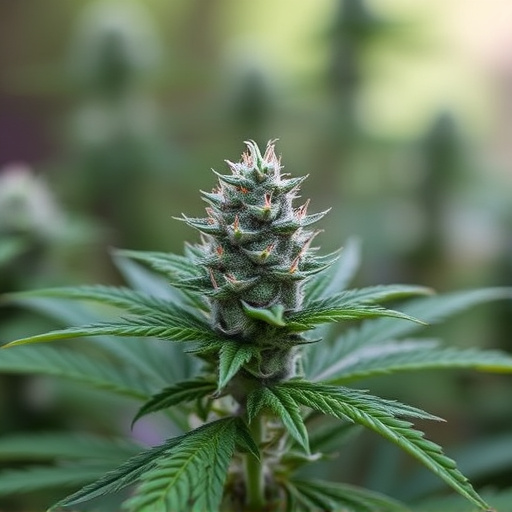Cannabis strains, rich in cannabinoids like THC and CBD, interact with the body's endocannabinoid system to influence mood, memory, pain, appetite, and inflammation. High-CBD strains are popular for their potential anxiety-relieving properties, offering relaxation without psychoactive effects. Research indicates that CBD effectively treats anxiety disorders, providing a natural alternative to conventional medications. However, different strains vary in cannabinoid and terpene levels, potentially leading to unwanted effects like paranoia. Consulting healthcare professionals is crucial for safe and effective management of anxiety using cannabis strains.
Discover the surprising health benefits of cannabis flower, a rapidly growing topic of interest in modern wellness. This natural compound has gained attention for its potential to alleviate various conditions, particularly stress and anxiety. In this article, we explore the science behind cannabis, focusing on its chemical composition and how different strains can be harnessed to manage anxiety. We also delve into the scientific evidence while highlighting risks to consider, offering a comprehensive guide to understanding cannabis strains for anxiety relief.
- Understanding Cannabis Flower and Its Chemical Composition
- The Role of Cannabis Strains in Managing Anxiety
- Scientific Evidence and Potential Risks to Consider
Understanding Cannabis Flower and Its Chemical Composition
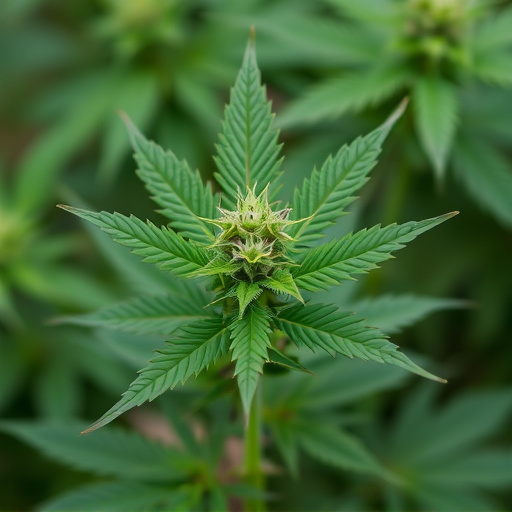
Cannabis flower, often referred to as marijuana, is a complex plant with a rich history and a growing list of recognized health benefits. At its core, cannabis contains over 100 chemical compounds known as cannabinoids, the most well-known being THC (tetrahydrocannabinol) and CBD (cannabidiol). These cannabinoids interact with our body’s endocannabinoid system (ECS), which plays a significant role in regulating mood, memory, pain sensation, appetite, and inflammation.
The chemical composition of different cannabis strains varies greatly, offering diverse effects on the human body, particularly when it comes to addressing specific health concerns. For example, cannabis strains known for their high CBD content are often sought after for their potential anxiety-relieving properties, as CBD is believed to help reduce stress and promote relaxation without inducing psychoactive effects. Understanding these chemical profiles is crucial in navigating the vast array of cannabis strains available and selecting those best suited for managing specific conditions like anxiety.
The Role of Cannabis Strains in Managing Anxiety
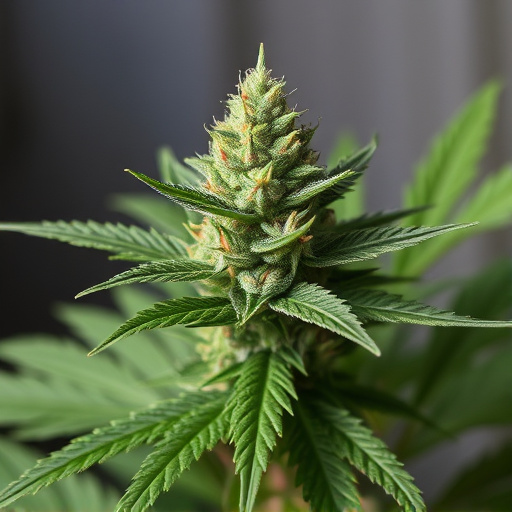
Cannabis has long been used as an alternative treatment for various conditions, including anxiety. The role of cannabis strains in managing anxiety is a growing area of interest for researchers and healthcare professionals. Different strains of cannabis contain varying levels of cannabinoids, such as THC (tetrahydrocannabinol) and CBD (cannabidiol), which have unique effects on the body and mind.
For individuals dealing with anxiety, specific cannabis strains known for their high CBD content are often recommended. CBD is non-intoxicating and has been shown to interact with the endocannabinoid system in the body, helping to regulate mood and reduce feelings of stress and panic. Studies suggest that CBD can effectively alleviate symptoms of anxiety disorders, providing a natural alternative to conventional treatments. These strains offer a promising approach to managing anxiety, allowing folks to find relief without the potential side effects or risks associated with prescription medications.
Scientific Evidence and Potential Risks to Consider
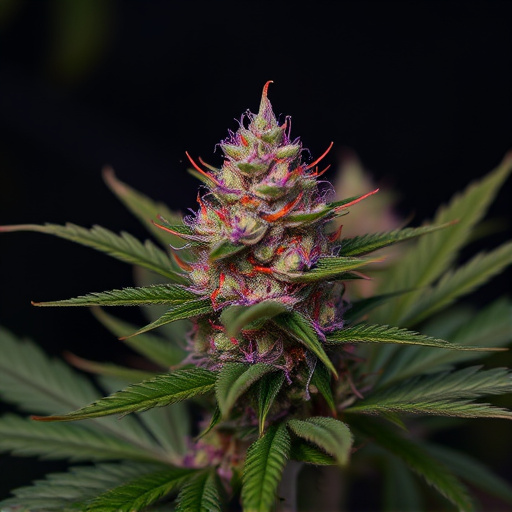
The scientific community has been actively researching cannabis and its various compounds, known as cannabinoids, for their potential therapeutic effects. Numerous studies have explored the benefits of cannabis strains for anxiety, highlighting their ability to interact with the endocannabinoid system in our bodies. This system plays a significant role in regulating mood, stress response, and memory. Research suggests that specific cannabis strains can help reduce anxiety symptoms, promote relaxation, and improve overall mental well-being. However, it’s essential to acknowledge that not all studies yield positive results, and the potential risks cannot be overlooked.
One of the primary concerns is the varying levels of cannabinoids and terpenes (aromatic compounds) in different cannabis strains. These chemical profiles can significantly impact the user’s experience and efficacy. While some strains may provide a calming effect, others might induce anxiety or paranoia. Additionally, long-term use and high doses can lead to adverse effects such as increased heart rate, dizziness, and cognitive impairments. Therefore, it is crucial for users to consult healthcare professionals, especially when considering cannabis strains for anxiety management, ensuring safe and informed usage.
Cannabis flower, with its diverse chemical composition, offers promising health benefits, particularly in managing anxiety through specific strains. Scientific evidence highlights its potential as a natural alternative for those seeking relief from symptoms associated with anxiety disorders. While risks should be considered, further research into the therapeutic properties of cannabis strains for anxiety may unlock valuable treatments, providing individuals with additional options for improving their mental well-being.

